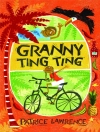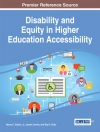The land, labor, credit, and trading institutions of Marmara village, in Hausaland, northern Nigeria, are detailed in this study through fieldwork conducted in two national economic cycles – the petroleum-boom prosperity (in 1977-1979), and the macro-economic decline (in 1985, 1996 and 1998). The book unveils a new paradigm of economic change in the West African savannah, demonstrating how rural accumulation in a polygynous society actually limits the extent of inequality while at the same time promoting technical change. A uniquely African non-capitalist trajectory of accumulation subordinates the acquisition of capital to the expansion of polygynous families, clientage networks, and circles of trading friends. The whole trajectory is driven by an indigenous ethics of personal responsibility. This model disputes the validity of both Marxian theories of capitalist transformation in Africa and the New Institutional Economics.
विषयसूची
List of Maps, Tables, Charts and Figures
Preface
Maps
Introduction: Methods of Fieldwork and Analysis
Chapter 1. An Introduction to the Political Economy and Culture of Marmara Hamlet
Chapter 2. The Cultural Logic of Non-Capitalist Accumulation
Chapter 3. Land Distribution and Land Transfers
Chapter 4. Farm Labouring Systems
Chapter 5. Credit Relations and Social Consumption
Chapter 6. Inter-regional Produce Markets
Chapter 7. Rural Produce Traders and Wealth Acquisition
Chapter 8. Economic Change from 1985 to 1998
Chapter 9. Change, Continuity – and Growth
Appendix I: Basic Information on Household Heads, Marmara, 1979
Appendix II: Innovation, Agricultural Extension and Yields
Appendix III: All Landholding Household Heads Grouped by Labour Practices During the Weeding Operation, 1978
Appendix IV: Household Consumption of Food Grain and Soup Ingredients` (Cefane)
Appendix V: Trading Purchases, Sales and Margins of `M`, 1978
Appendix VI: Land Sales and Labour Use, Marmara, 1978 and 1979
Glossary of Key Hausa Words in the Text
Bibliography
लेखक के बारे में
Paul Clough (1949-2019) was Associate Professor of Anthropology at the University of Malta. His D.Phil. from Oxford University was runner-up for the Audrey Richards Prize in 1996, awarded by the International African Institute every two years for the best thesis in any branch of African studies.












